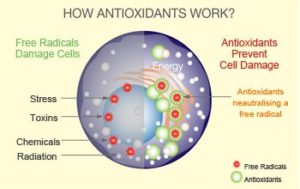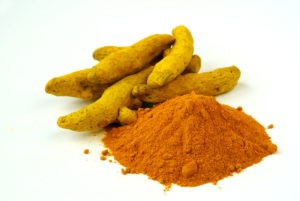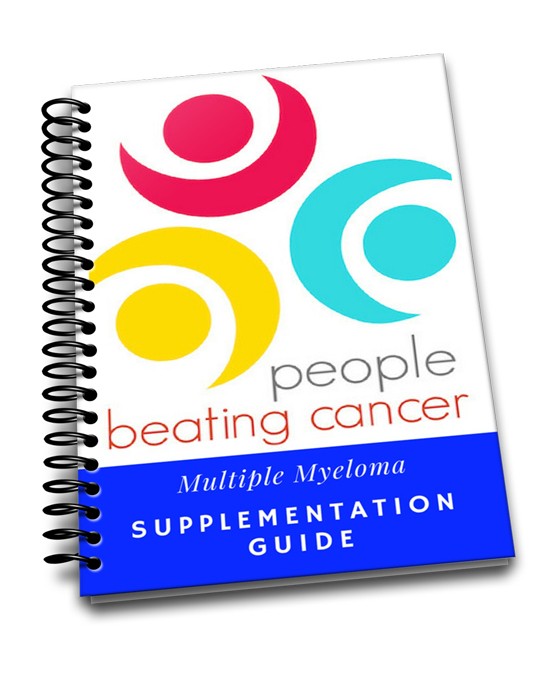“But some practitioners in complementary or integrative medicine support the use of certain dietary supplementation –”
“Is is okay to supplement with ____________(curcumin, resveratrol, omega-3, etc. fill in the blank) during my multiple myeloma treatment (induction chemo, autologous stem cell transplant, maintenance therapy)? As a multiple myeloma survivor and MM coach I read this question frequently.

In my opinion, the answer is not “a gray area” as the U.S. News and World Report article linked and excerpted below states. The answer to whether or not to supplement with any given nutriceutical before, during or after conventional chemotherapy or radiation depends on evidence-based research.
After all, conventional oncology cites science or evidence-based research as the foundation of cancer care today.
More importantly, conventional oncology considers MM to be incurable. MM patients and survivors must remember that following standard-of-care MM therapies will result in remission, relapse, remission, relapse, end-stage MM and hospice.

For instance, take the nutritional supplement Curcumin. Search “Curcumin, Multiple Myeloma” in Pubmed and you will get search results of more than 2497 research studies.
To be clear, that one nutritional supplement has been shown to be
- cytotoxic- (kill) to multiple myeloma
- integrative- (enhance) multiple myeloma chemotherapy regimens such as Velcade-
- complementary- support your health as you undergo toxic MM therapies
Of the 6 (six) common supplements listed in the U.S. News article and excerpted below, I have or currently supplement with five of these. I do so only based on the research studies that I have read. My goal is to both remain cancer free as well as heal the collateral damage caused by the toxic therapies I underwent from ’94-’97.
PeopleBeatingCancer.org is full of blog posts citing how and why cancer patients should or shouldn’t supplement with all six supplements listed below as well as resveratrol, intravenous vitamin C, and others. MM patients email me daily asking about nutritional supplements that may kill their MM, enhance their chemotherapy or heal their side effects.
My advice to MM patients who are apprehensive about supplementation during therapy, simply stop taking the supplement a day or two before the Multiple Myeloma treatment and then resume a day or two after completing the Multiple Myeloma treatment.
To ask a question or comment about your own cancer situation, scroll down the page, write a post and I will reply ASAP.
Thank you,
David Emerson
- MM Survivor,
- MM Coach,
- Director PeopleBeatingCancer
Recommended Reading:
“Is it a good idea to take dietary supplements while going through active (multiple myeloma treatment) ? It’s a gray area. Some doctors say patients should hold off, at least while undergoing chemotherapy. But some practitioners in complementary or integrative medicine support the use of certain dietary supplements – such as vitamin D, mushroom extracts, green tea and curcumin – in certain cases, saying they may have cancer-fighting properties and reduce treatment side effects…
Estimates vary, but studies suggest up to 87 percent of women treated for breast cancer take dietary supplements. In general, the bottom line is that many cancer patients use supplements – doctor-recommended or not…
Common Supplements:
- Curcumin–
- Glutamine-
- Maitake mushrooms-
- Fish oil (omega 3 fatty acids)-
- Probiotics-
- Milk thistle-
Vitamin D is a special case. “All cancer patients should have their vitamin D levels tested,” Dixon says, and if levels are low, they should work with their doctor or dietitian on a supplementation plan to return them to a normal range during treatment. Evidence suggests people with vitamin D deficiency don’t do as well in terms of cancer survival and symptoms…”
“A question we are often asked is: Should I take vitamins during cancer treatment? It is an extremely important question considering a few statistics. In 2008, it was noted in the Journal of Clinical Oncology that between 64 and 81 percent of cancer patients were using a vitamin or mineral supplement (in contrast to 50 percent of the general population) and that between 14 and 32 percent of these people started taking supplements after their diagnosis of cancer. This is even more concerning now that studies in 2019 found that antioxidant supplements are associated with lower breast cancer survival and may hasten the spread of lung cancer.
The simple answer is: “The only one who can answer that question is your oncologist.”
A better answer is: “Ask your oncologist before you take any type of supplements, but check out some of the considerations below—the reasons for and against—so you can better understand your doctor’s answer and decide together.”
Never take a vitamin, mineral, or antioxidant supplement without first consulting your doctor, as this can be dangerous for some people with cancer.
This article covers some of the possible risks and benefits of supplements, but it’s important to note a few things. There are many types of cancer, and even with a single type of cancer there are tremendous differences. Add that to each unique person, with their own body characteristics and other medical conditions, and it’s easy to see why even something that may seem like a simple question is very complex.
A list of vitamins and minerals needed for health, as well as a list of common dietary antioxidants, can be found at the end of this article…”





